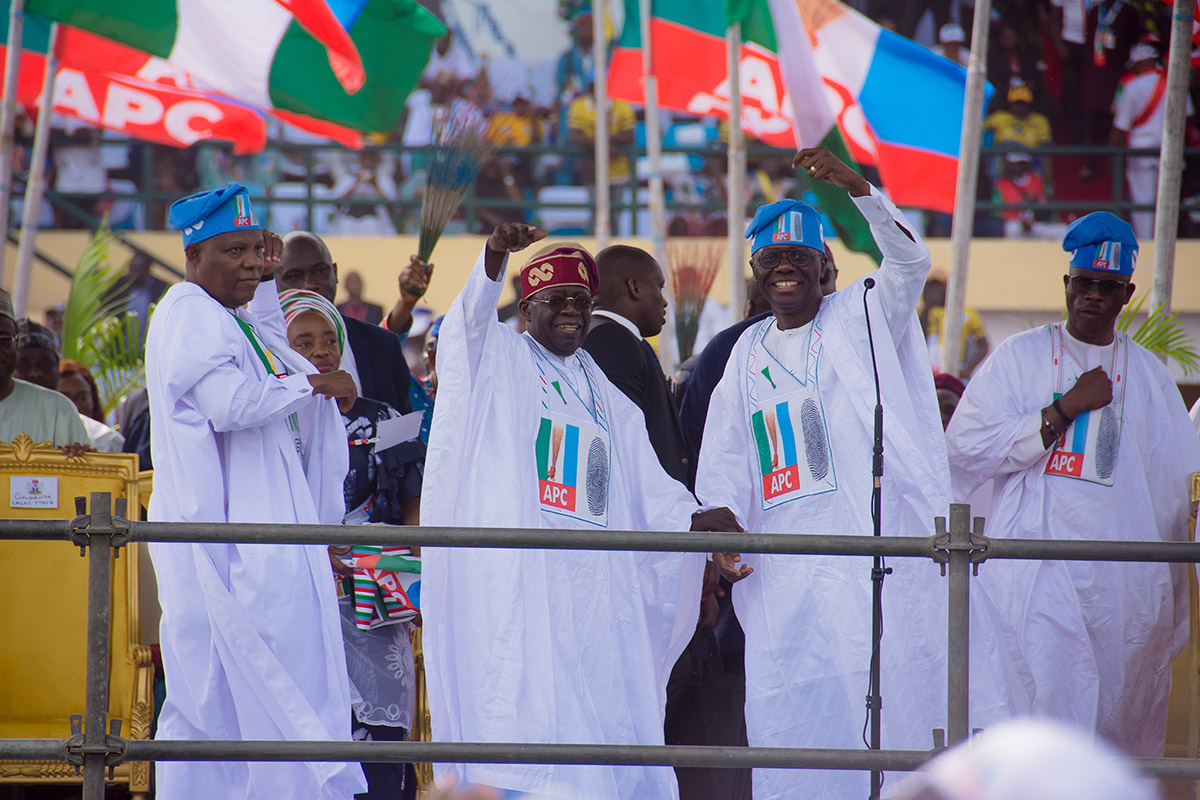Nigeria’s Tinubu – Shettima Administration at One Year
May 29by Chimaobi Omeye
Eight years ago, I authored an article assessing the first year of former President Muhammadu Buhari’s tenure, titled “A Year of Sorrow or Positive Change?” and after eight years, some consider Buhari’s government to be the worst in the history of the West African country.
As a patriotic Nigerian, I feel obligated to analyze the first-year performance of Nigeria’s top leaders. The administration of President Bola Ahmed Tinubu and Vice President Kashim Shettima began on May 29, 2023, and after one year, it has been a challenging period filled with highs and lows, surprises, and shocks following an election that some Nigerians believe lacked credibility.
Nigerian Economy
Former President Obasanjo recently remarked that President Tinubu’s administration has not yet found a solution to rescue the economy. For many Nigerians, this statement rings true. On May 29, 2023, President Tinubu declared the end of the oil subsidy and announced the unification of the naira’s multiple exchange rates, decisions that seem to be at the heart of the economy’s poor state one year later. These economic reforms may satisfy some top global financial organizations, but not the ordinary Nigerians and the millions living in extreme level of poverty.
Nonetheless, President Tinubu inherited a struggling economy with a GDP growth rate of about 2.74% in 2023 and has made slight progress, achieving a growth rate of 2.98% in Q1 of 2024. The naira has been free falling, losing more than 100% of its value when compared to the last administration. Foreign direct investment has also been dropping rapidly, external and internal debts increasing year by year and insecurity pondering all efforts and increasing inflation which is the highest in 27 years.
Additionally, the unemployment rate continues to rise at an alarming and unprecedented pace. Over-taxation is another major concern for many Nigerians, as it has crippled businesses. Many believe that excessive taxes cannot sustain economic growth. Additionally, the government’s excessive and unnecessary spending has failed to demonstrate a genuine commitment to rebuilding the economy. Furthermore, public refineries are yet to refine any petroleum products, and the inability to supply crude oil to the Dangote refinery remains a significant concern.
However, according to the President, he applied for the job and must be held accountable for his performance. After one year, Nigerians are yet to see significant improvements in the economy of the continent’s most populous country.
International Relations
The Nigerien coup of 2023 was the first test for the President especially being the Economic Community of West African State (ECOWAS) Chairman. I strongly believe the situation was not handled well diplomatically and in the interest of Nigerians. One of the most crucial and unavoidable conditions for national security and economic prosperity is how well a country maintains relations with its neighbours. The breakdown of the friendship between Nigeria and Niger Republic appears to be a significant mistake. Nigeria’s foreign policy, which emphasizes national interest, African integration, and support for African unity, was compromised during the Nigerien crisis, and also, ECOWAS has fully appeared to be a very weak organisation.
Security
The Nigerian President said during his May 29, 2024 Inauguration that “Security shall be the top priority of the administration because neither prosperity nor justice can prevail amidst insecurity and violence.
“To effectively tackle this menace, we shall reform both our security doctrine and its architecture. We shall invest more in our security personnel, and this means more than an increase in number. We shall provide, better training, equipment, pay, and firepower.”
After one year, many Nigerians believe insecurity has worsened. Just this week, gunmen suspected to be Boko Haram abducted 160 Nigerians after killing eight persons in the north-central state of Niger. They terrorised the community for hours without any challenge from security personnel. Also, just few months ago, more than 120 school children were kidnapped in Kaduna state. Terrorists have taken full control of hundreds of villages in the northern part of the country. These are few stories with many unknowns happening everyday both at the rural communities and even across the cities. All these are the major reason why many Nigerians are clamouring for state policing as the only way out, as Abuja has failed over time even before Tinubu’s administration to solve the pandemic.
Accomplishments
Formerly a kingmaker and now President, widely regarded as one of the smartest politicians to reach the Aso Villa, President Tinubu, despite a rocky start, has made small progress in his first year. He has made appointments and set his cabinets quicker than most recent Presidents. His administration has achieved notable infrastructural development especially within the capital city, Abuja, continuing the focus on infrastructure that was a little hallmark of the previous administration.
The country has received many pledges for investment with the most recent coming from India for a $14 billion investment. Finally, on quarter-quarter basis, the oil sector has recorded a growth rate of 13.77% with production per day rising slightly.
As I mentioned in my 2016 article, it was not yet uhuru for the previous government, and I believe the same applies to the Tinubu-Shettima administration. There are still three years left to make up for the lost first year. However, the dynamic and intelligent opposition leader, Peter Obi, continues to rally support and is poised to challenge for the Aso Villa in 2027. This should be a significant concern for President Tinubu especially with the news of possible merger of the major opposition parties. This is also a major incentive for the President to transform the lives of Nigerians as quickly as possible and regain their support and trust.






